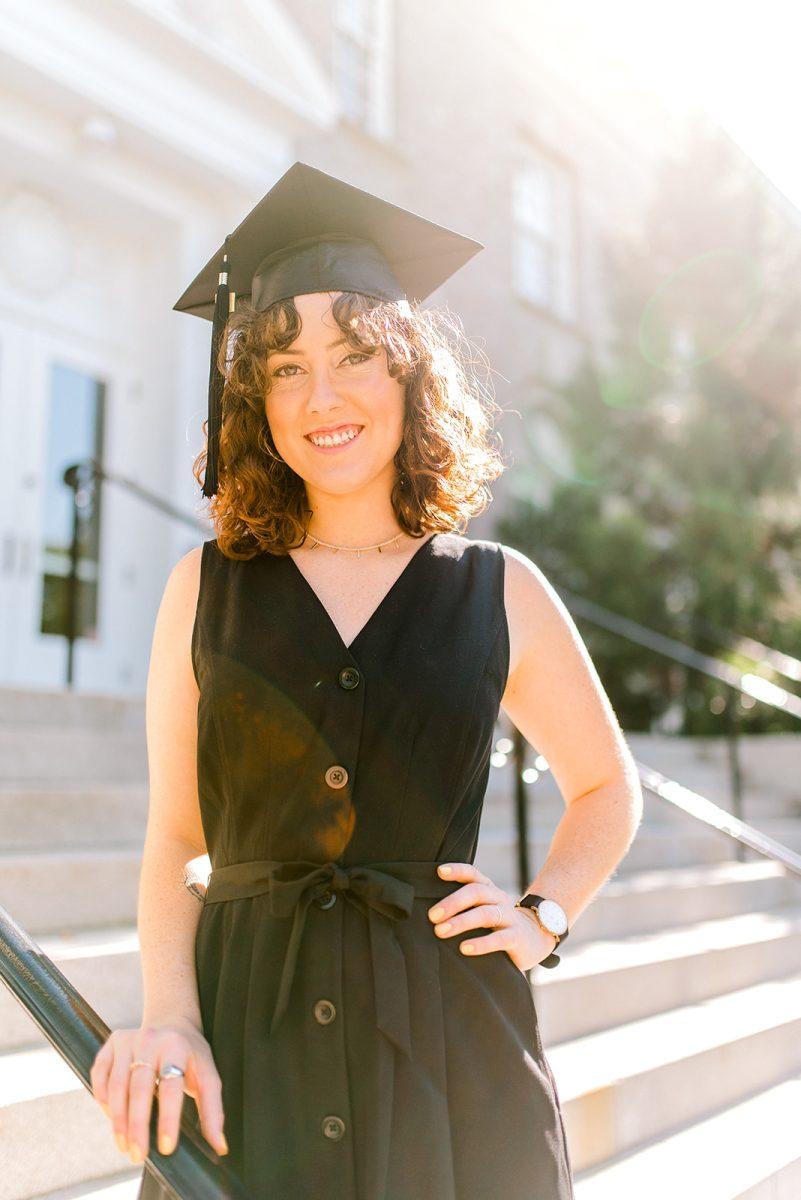Recent graduate serving through AmeriCorps
Graduating in the middle of a pandemic is no small feat. Estes, an Art History and Spanish double major, was one of the many Wofford graduates who found themselves looking into the future during uncertain times.
Before the pandemic, Estes was hoping to move to Guatemala to serve in the Peace Corps. Though she was excited for the opportunity to live in another country, she said, “I was really fortunate when a Spartanburg community member reached out in May to see how the pandemic had affected my post-grad plans. When I told him that the Peace Corps was on hold for at least several months, he asked if I’d be interested in the AmeriCorps VISTA (Volunteers in Service to America) position for his organization at their new office in Greenville, South Carolina. I was so lucky that an opportunity landed in my lap and that it aligned with my goals of public service.”
Currently, Estes is serving as the Community Engagement VISTA with EMERGE Family Therapy Center and Teaching Clinic, a low-cost behavioral health service provider and educational program. For Estes a typical day consists of participating in virtual meetings, sending outreach emails, and creating content and strategies for program sustainability.
“My AmeriCorps cohort is connected with the Greenville County Behavioral Health Coalition (GCBH) and sponsored by Mental Health America of Greenville County (MHAGC), Estes said. “That means that each of our sites is focused on eliminating poverty through increased access to behavioral health, and that part of our service includes a few hours every week answering the phones for the National Suicide Prevention Lifeline.”
Estes shared, “The best part of being in the program is the unique privilege to support non-profits that are building their capacity to serve the community. For me, this has granted knowledge that, in other sectors, comes with 5-10 years of experience.”
Additionally, she shared that her experience with AmeriCorps has taught her the importance of working with others and being flexible in order to work with various group dynamics.
Estes said her biggest challenge is living off of the AmeriCorps VISTA’s living stipend. All VISTAs are paid enough to live at the poverty level, which means they qualify for the food assistance program SNAP that gives its users about $130 per month to use on groceries. While this money is meant to help those in poverty, Estes explained that in a pandemic, there are systemic challenges that come with ordering groceries.
“Many grocery companies advertise that they accept SNAP, but when you go to check out, it says SNAP doesn’t work because ordering online entails a fee that can’t be paid separately by another card. SNAP cards are set up to only permit charges for food—excluding the hot food like the buffets at Ingles,” Estes explained.
“We’ve learned during this pandemic that those living at lower-income levels are already disproportionately affected by the virus,” Estes continued, “yet they can’t practice the same privilege of social-distancing to get their food supplies if they rely on SNAP to stay within their budget.”
Estes shared that the most helpful Wofford experience that prepared her for service with AmeriCorps was her independent research project abroad as it helped her to define her communication skills, which she has found especially applicable to her current position. Additionally, she has been able to apply her Spanish background to her volunteer work as a PRISMA’s Language Services Coordinator in order to best accommodate the Spanish-speaking population at vaccination sites.
For Wofford students interested in pursuing service with AmeriCorps, Estes recommends “If you’re interested in AmeriCorps, keep your interests open. I never considered myself interested in public or behavioral health, but I’m glad that I’ve been able to gain experience in the public sector through the behavioral health lens. Being a VISTA is kind of like taking an interim class—it can be a great opportunity to learn about something you otherwise don’t have time to study during the semester, while still getting meaningful credit towards your goal.”






























